#Development
That Blows: Honda Opens New Wind Tunnel
There is seemingly no end to the number of toys and tools automakers have at their disposal when developing new cars at places such as Honda. Wind tunnels – those development halls, not local politicians – have been around for decades but have seen an array of advancements in tech over the years. Today, Honda opened a state-of-the-art facility at its campus in Ohio.
Subaru Says No WRX STI, Suggests Electric Model
When Subaru announced the latest WRX sedan, it was made perfectly clear that it would arrive without the high-performance STI variant metaphorically in tow. After attempting to push performance versions of the Impreza sedan into becoming their own thing for years, the 2022 model year saw the WRX jumping onto the Subaru Global Platform. This resulted in a more mainstream vehicle we assumed would need additional time in the relevant skunkworks garage before it could reemerge as the aggressive, rally-inspired, no-nonsense WRX STI.
But Subaru is now saying that there won’t be an STI for this generation. According to the manufacturer, “future sports and performance cars should evolve to meet the needs of the changing marketplace and the regulations and requirements for greenhouse gasses (GHG), zero emissions vehicles (ZEV), and Corporate Average Fuel Economy (CAFE).”
Stellantis CEO Says Electrification Advanced by Politicians, Not the Industry
Despite Stellantis making formal announcements that it will be investing 30 billion euros ($34 billion USD) into its novel electrification strategy, CEO Carlos Tavares has been making it sound as if the automaker’s plan was crafted under duress. He’s been telling European media that the widespread adoption of EVs is primarily being pushed by politicians who are ignoring the environmental risks and logistical shortcomings.
“What is clear is that electrification is a technology chosen by politicians, not the industry,” he said told the press this week.
Toyota Promises Solid-State Batteries By 2025
While electrification has felt like the only thing automakers are willing to talk about anymore, CES 2022 provided yet another opportunity to see which companies are willing to make the biggest promises when pitted against each other. This encouraged plenty of manufacturers to issue reminders of their existing EV timetables, though we’d be lying if we expected any company to adhere to them all that closely.
Then there’s Toyota. Despite being the largest automaker on the planet by volume, the Japanese company is famous for hedging its bets and not being all that secretive about it. When other manufacturers were vowing swift electrification at all costs, Toyota said they would need to continue producing hybrids if they were to realistically serve the public. But the business is still developing battery tech, with a vested interest in selling it off to rival manufacturers who are more willing to run with BEVs exclusively. It’s also been developing solid-state batteries, which it has confirmed are on track for delivery by 2025.
Report: Apple Wants IPhone to Have More Control Over Cars
Most of us have synced our phones to a vehicle to play music, unwittingly funneling personal information to the manufacturer in the process. But only an elite few have used their mobile device to digitally summon an automobile out of a garage or remotely tell it to pre-condition interior temperatures to the desired specification. However, that’s likely going to be the future and Apple would very much like to be leading the charge.
The tech giant is reportedly developing a way to better integrate smartphones with cars by accessing systems that are currently unavailable to CarPlay. Apple’s new program, internally known as IronHeart, seeks to collaborate with automakers so that its phones can network with vehicles in new and interesting ways. It’s effectively CarPlay 2.0 and sounds as though it would be giving the company access to just about every item drivers might interface with on a daily basis.
Daimler Getting Back Into Bed With Chrysler for Battery Biz
Daimler is getting cozy with Chrysler again, or at least the American side of Stellantis, so they can tackle battery development and production. Those in the know will recall that Chrysler has been passed around more than a bottle of booze at a middle school party. But its long history of partnerships also kept it in business and resulted in some of its better products.
Before the Amero-French merger that resulted in Stellantis, Fiat Chrysler Automobiles was an Italian-American company with facilities dotted around North America. Prior to that, it was known as DaimlerChrysler – resulting in the LX Platform, Pentastar V6, and a wider variety of Jeep Wranglers. Now, Chrysler’s alienated German wife has shown up on the doorstep with a wad of cash and news that she’ll be investing it into the new battery business.
Volkswagen Group: Audi Employs Ken Block, Porsche Making 718 Electric
Despite being the target of a German lawsuit accusing the manufacturer of not being green enough, Volkswagen Group is probably the legacy automaker touting the merits of electrification with the most enthusiasm. While undoubtedly influenced by the diesel emissions catastrophe that cheesed off every regulator in the Western world, its brand has actively been delivering EVs and praising alternative energy automobiles whenever possible.
There was more of that this week. Porsche has reportedly decided to make the 718 to be an all-electric model by 2025 and Audi recently announced that it’s employing rally icon and Hoonigan founder Ken Block (who broke with the Ford Motor Co. earlier this year) to develop EVs.
Return of the Apple Car: Almost There or Vaporware?
After years of restarting and then killing its electric vehicle program, Apple has again signaled that it’s once again serious about developing something for your driveway. Ulrich Kranz, former Canoo CEO and brains behind the BMW i-cars, has reportedly been picked up by the company for its automotive team.
Apple has yet to verify the hire and Kranz hasn’t updated his LinkedIn profile. But there have been multiple reports that he’s been been taken aboard specifically for his EV expertise. Unless social networking platforms are becoming passé (fingers crossed), it’s likely that the tech company wanted to wait until it could make an official announcement accompanied by an update on development.
That’s assuming Apple is still doing a car, however.
Williams Engineering and Italdesign Launching Joint EV Platform
Williams Advanced Engineering is teaming up with Italdesign to establish another electric vehicle platform targeting the wealthy — or an “upper-premium EV production solution,” according to those responsible for its development.
Dubbed the EVX modular electric platform, the architecture uses large structural batteries and an abundance of recycled composites mixed in with lightweight aluminum. They should also be pretty chic, considering the parties involved. Williams exists specifically to adapt technologies utilized by its Formula 1 team for commercial applications while Italdesign is probably the most famous automotive design studio in automotive history.
SEAT Positioned to Head Development on VW Group's Littlest EVs
Despite Volkswagen having snatched away MEB development duties planned for SEAT, it’s apparently happy to give the Spanish brand an opportunity to head projects for the MEB-Lite platform for the majority of VW Group. The resulting vehicles should all be compact battery electric or hybrid cars, and potentially very low in fat, sugar, or carbs based on the agreed-upon naming conventions.
Better still, Volkswagen has claimed these vehicles should begin arriving by 2025 yielding MSRPs below €20,000 — which is roughly $24,000 USD. We’re not willing to rule anything out for our market, especially given the segment is relatively new. But North America isn’t prone to receiving exceptionally small European imports, so don’t hold you’re breath if you happen to be living within the region and eager to buy an EV smaller than the I.D.4.
Toyota R&D Creating $800 Million Investment Fund
On Thursday, Toyota Motor Corp.’s research division announced it would create an $800 million global investment fund. While important news, Toyota’s dispatch was expected. The business had previously mentioned it was assembling a new holding company called Woven in July, noting that the entity would be focused on heavily upon software development and finding new partners for its most advanced projects.
Most of those seem to be in support of the “mobility as a service” concept that seeks to remove customers’ ability to own vehicles. The rest are interested in promoting alternative energy solutions or social engineering how we’ll be living in the future via “smart cities.” The fund also seems to be helping replace Toyota Research Institute-Advanced Development (TRI-AD). In fact, the Japanese R&D arm was actually the one that announced the $800 million “global growth-stage investment fund” that officially creates Woven Capital.
Bentley Resumes Production on 4 Litre After Almost 100 Years
With manufacturers having realized there’s a small but very interested market for historically relevant automobiles, we’ve seen some of the fancier names in motoring embrace “continuation models” with astronomical price tags.
Some of these cars are arguably better than the real thing, too. Jaguar and Aston Martin revived a handful of their finest products from the middle of the 2oth century, adding a smattering of modern technologies to make the cars more livable. And lacking the authenticity of being a true original results in substantially lower MSRPs — though calling them affordable would be a misnomer, as some continuation models still go for millions of dollars.
Case in point is the new/old Blower Bentley, which is the ultra-rare racing variant of the 1929 Bentley 4½-litre with the Roots-type supercharger sitting in front of radiator like a giant nose. Bentley announced in 2019 that it would build a dozen examples of the automotive icon — all of which were sold long before the manufacturer tightened a single bolt. Considering the staggering amount of work required to build a true continuation car (the manufacturer actually had to disassemble and scan every single part on an original 4½-litre just to create a digital blueprint), the coronavirus pandemic has been a sizable setback. Bentley now says that phase one of the plan has concluded and the automobile serving as the prototype/template for all subsequent models (Car Zero) has begun construction as parts start rolling in.
Audi Suggests Computing Power Will Decide Industry Winners/Losers
With regulatory bodies the world over forcing the automotive sector to prioritize efficiency over mightiness, industry rhetoric has gradually shifted away from the powertrain. While every brand still wants to squeeze out all available power from ubiquitous four-cylinder motors, providing excess is only a priority in a handful of cases catering directly to enthusiasts.
The idea of a big, brutish luxury car with a monstrous engine still exists, but it’s being supplanted by technology-driven features catering to tech-focused minds and the green movement. Modern luxury is based in connectivity, applications, and distancing one from the experience of driving altogether — or at least that’s what the automotive industry now seems to believe.
And they may have a point. While we’re well aware those advocating “mobility” desperately want it so that they can tap into your data (to enhance revenue using the same grimy business tactics favored by big tech firms), carmakers also need something shiny to dangle in front of consumers so we’ll buy the latest and greatest product. The tech sector is also booming right now, and the industry’s dying to get investors back on its side after seeing the Wall Street performance of EV companies — especially Tesla Motors.
Even the traditionalists at Toyota are buying into it, announcing an important push into software development as they attempt to craft the next industry-standard operating system for cars. It’s also the song Volkswagen Group has sung ever since Dieselgate. Meanwhile, Audi recently explained its own commitment to software after its parent company (VW) tasked it with ensuring the botched launches of the ID.3 and Mk8 Golf don’t become commonplace.
Toyota Is Becoming a Software Company
Toyota announced the creation of a new holding company that will oversee its software development initiatives this week. While our default response is to gripe about the nebulous concept of “mobility companies” and the industry’s obnoxious emphasis on shifting data, we also understand that it pays to have someone on hand who knows their way around a line of code.
It wasn’t all that long go that Volkswagen was bragging about taking software seriously, only to be publicly shamed by the media when bunk programming screwed up the launch of numerous physical products. The cynical side of the brain knows this could have been avoided by ignoring unnecessary connectivity features and a potentially ill-conceived attempt to digitize the entire cabin.
We’re sympathetic to the nature of competition and the appeal “newness” has on customers. The automotive industry has seen the sea of riches amassed by tech companies harvesting data and knows which way the wind is blowing. No brand wants to be seen as technologically inferior, even if many of the newer features in modern cars aren’t really in service of anything other than marketing. Yet the “software first” mentality that has started presiding over vehicle development seems somewhat counterproductive, and Toyota may have just bought into it hook, line and sinker.
Then again, maybe it’s a great play and we’re just not seeing the big picture. So let’s dive in and see what we find.
VW Group Hands Software Development Over to Audi
Volkswagen Group plans to transfer software development leadership to its Audi division following an embarrassingly high number of technical glitches on some of its upcoming products.
With the industry committed to making sure tomorrow’s cars more closely resemble today’s phones, some automakers have decided to do the brunt of their coding in-house. VW decided to increase the share of its software it’s responsible for — targeting 60 percent of all the code that goes into its products by 2025 — but problems cropped up en route to its destination.



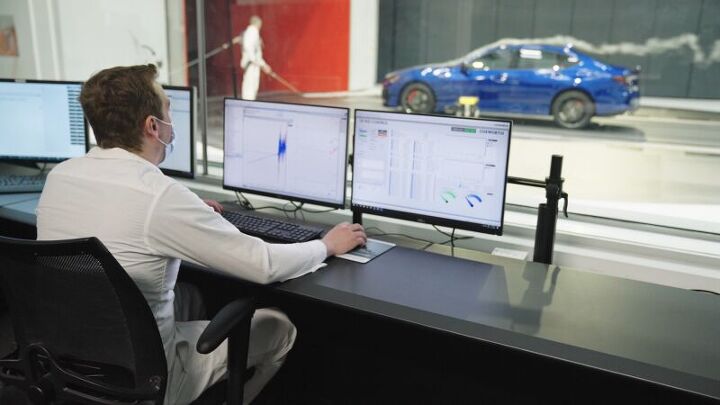


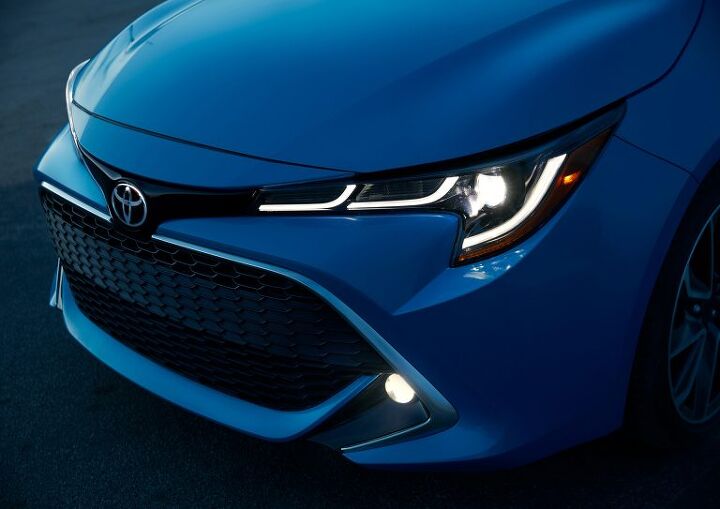


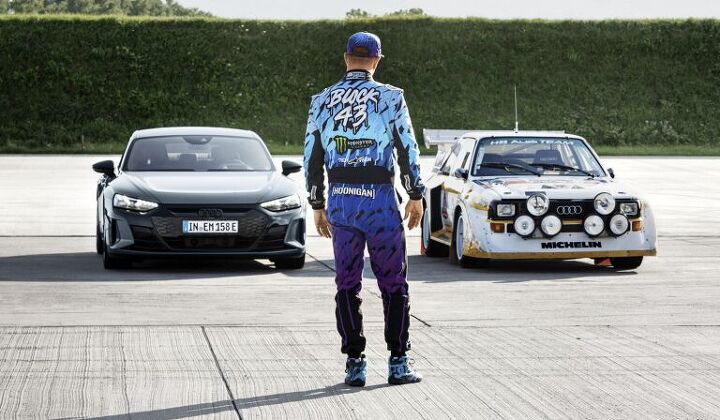
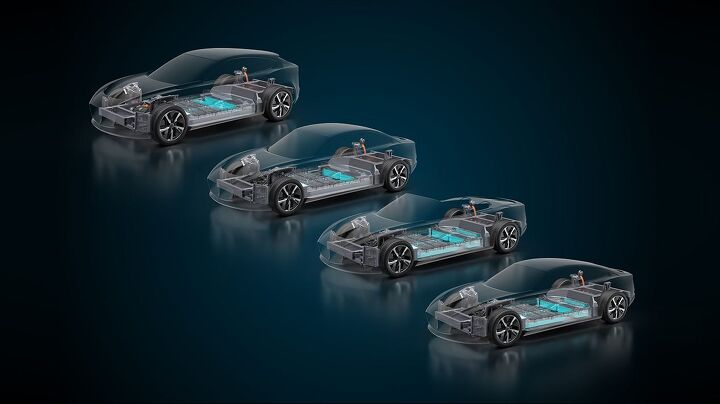




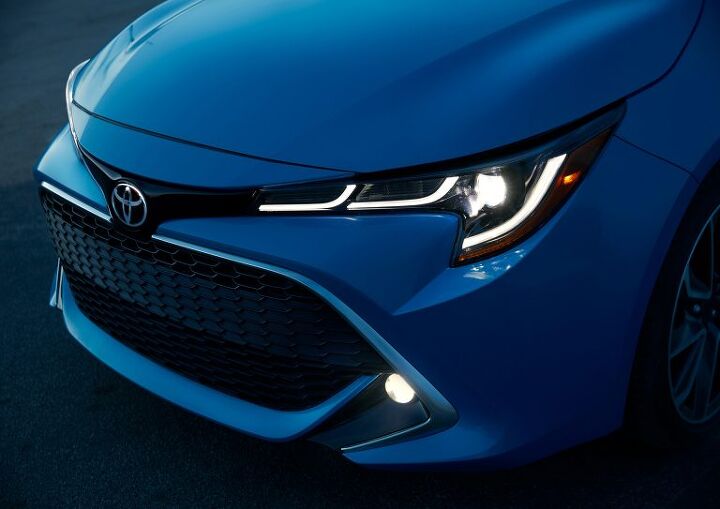













Recent Comments